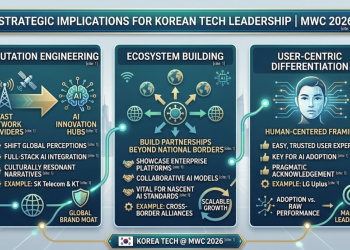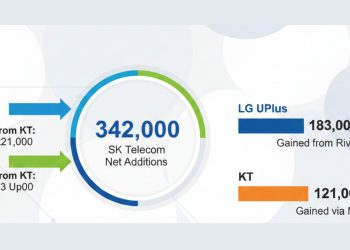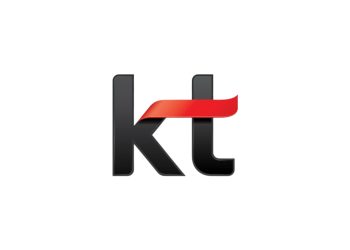LG Uplus, a South Korea-based mobile network operator, a subsidiary of LG Corporation affirmed on Monday that they have successfully created a frequency coverage expansion technology. LG Uplus, as well as Pohang University of Science and Technology (POSTECH), collaborated for developing this new frequency-led technology dubbed Reconfigurable Intelligent Surface (RIS).
Together, both parties gave a demonstration for the newcomer tech the same day. According to them, this development will enhance the network quality experience and service competitiveness among the 6G patrons in the coming years.
LG Uplus and Professor Won-Bin who’s the head of the team that led the new development project at Pohang University joined forces a year ago. Their latest RIS technology is one centre of 6G mobile communication service enactment as it boosts the frequency coverage in the terahertz band, an essential frequency band for 6G network communication.
Terahertz frequency is comprehended for its ultra-high transmission speed along with sound data service breadth. So far terahertz has been actively implemented in the investigation of superconductors, rational states of molecules and also plasmonic effects in conducting materials.
6G networks ask for ultra-wide bandwidth frequency bands like terahertz although this frequency band has not been widely used in the mobile communication field in the past. In recent years, the inclusion of terahertz has started catching pace.
However, the terahertz frequency band comes with certain limitations for say its wavelength is not pliant enough in an obstacle-plugged setting or indoor places. It was one hefty challenge for the LG Uplus and Pohang University teams.
They had to counter the communication quality damage issues amid radio wave loss. For achieving that, LG Uplus and a team from Pohang University focused and achieved building a contemporary radio wave surface capable of reflecting, absorbing and also transmitting radio waves in a synthetic path or when artificially adjusted, all in a terahertz frequency band.
The new LG Uplus RIS technology augments the reach of radio wakes by minimizing the misleading terahertz band to a larger extent. It is ascertained that this technology would help in saving the cost of constructing a 6G network-friendly wireless infrastructure. On the other hand, it will also enhance the quality of communication services via 5G communication bands and more.
According to the LG Uplus and Pohang team, this is the first time a technology has come into being that enables efficient communication system configuration by influencing the radio communication environment.
In February 2023, South Korea announced its K-Network 2030 strategy under which the government aimed to commercialize the 6G network service by 2028. The strategy was launched to encourage the development of futuristic 6G technologies, innovate software-based next-generation mobile networks, and also strengthen the network supply chain within South Korea.
The Korean Ministry of Science and Information and Communication Technology (ICT) dispensed around $481.7 million for research and development related to 6G technologies. The new RIS technology builds in collaboration with the mobile network provider, LG Uplus and academic science and tech, Pohang Institute is one extension of Korea’s network 2030 strategy.







